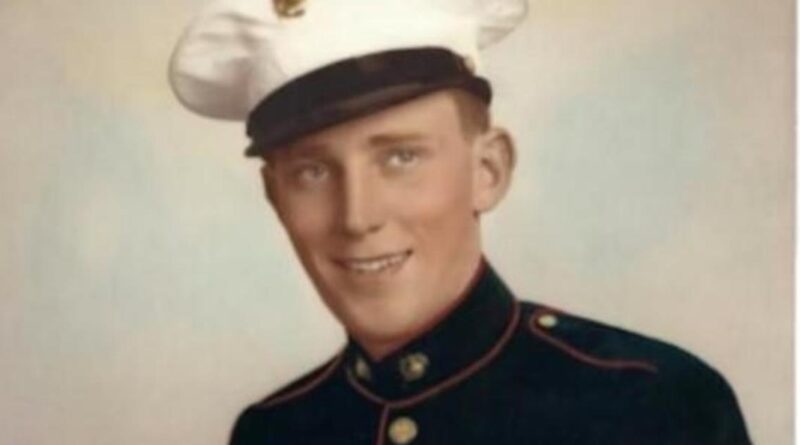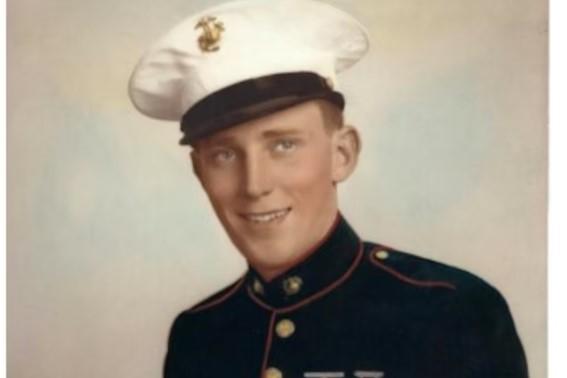U.S. Marine killed in WWII accounted for 8 decades after sending ominous letter to family
A U.S. Marine who sent an ominous letter home before he went missing in action during World War II has been accounted for over eight decades after he was killed in the Pacific, the Defense Department announced Thursday.
In November 1943, Marine Corps Sgt. Robert F. Van Heck, 25, of Chicago, was part of a force that tried to secure the small island of Betio in the Tarawa Atoll of the Japanese-held Gilbert Islands, according to the Defense POW/MIA Accounting Agency. During several days of intense fighting, Japanese forces were decimated, and about 1,000 U.S. Marines and sailors were killed. Van Heck died on the first day of the battle, Nov. 20, 1943.
According to a newspaper clipping shared by U.S. officials, Van Heck had sent a letter to his family warning that he would not be returning home. The young Marine had written: “Don’t count on me coming home this spring as we had planned.”
The message — and its timing — proved prophetic.
According to the newspaper article, about a half an hour later, the family received a telegram announcing “the death of Sgt. Robert Van Heck who was killed in action.”
DPAA
Years after Van Heck’s death, the remains of all U.S. soldiers found on Tarawa were sent to Hawaii for analysis. Remains that could not be identified, including Van Heck’s, were buried as “unknowns” at the National Memorial Cemetery of the Pacific, also known as the Punchbowl, in Honolulu.
In 2017, one set of remains — labeled as Tarawa UnknownX-265 — was disinterred for analysis. Scientists were finally able to identify Van Heck’s remains through anthropological analysis and mitochondrial DNA. Van Heck was officially accounted for on April 13, 2023, and his family was recently briefed on his identification, the DPAA said.
Van Heck will be buried Jan. 7, 2025, in Hillside, Illinois. According to a separate newspaper clipping shared by the DPAA, Van Heck was awarded several military medals, including a Purple Heart.
DPAA
According to the DPAA, the remains of nearly 1,700 previously unidentified U.S. soldiers killed in World War II have been identified, but over 70,000 remain unaccounted for.
Of the roughly 1,000 U.S. service members killed during the Battle of Tarawa, about 350 remain unaccounted-for. The DPAA says that over the decades, storms and construction projects on the island have uncovered isolated remains associated with Americans killed during the Battle of Tarawa. Those remains were turned over to the U.S. Government.



